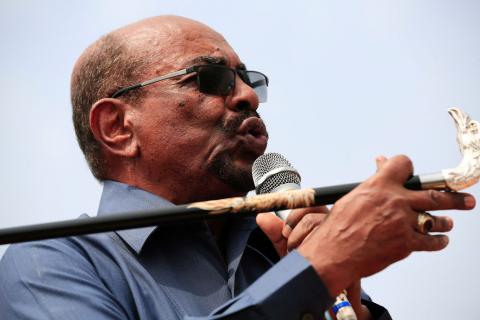Advertisement
Sudan investigating Bashir after large sums of cash found at home - source
KHARTOUM (Reuters) - Sudan's public prosecutor has begun investigating ousted President Omar al-Bashir on charges of money laundering and possession of large sums of foreign currency without legal grounds, a judicial source said on Saturday.
The source said that military intelligence had searched Bashir's home and found suitcases loaded with more than $351,000 and six million euros, as well as five million Sudanese pounds.
"The chief public prosecutor... ordered the (former) president detained and quickly questioned in preparation to put him on trial," a judicial source told Reuters.
"The public prosecution will question the former president in Kobar prison," the source added.
Relatives could not be immediately reached on Saturday for comment about the investigation.
Bashir, who is also being sought by the International Criminal Court over allegations of genocide in the country's western Darfur region, was ousted on April 11 by the military following months of protests against his rule and had been held at a presidential residence.
Bashir's family said this week that the former president had been moved to the high-security Kobar prison in Khartoum.
As president Bashir often played up his humble beginnings as the child of a poor farming family in Hosh Bannaga, a small village consisting mainly of mud houses on the eastern bank of the Nile some 150 km (93 miles) north of Khartoum.
The Sudanese Professionals' Association, leading the protests, has called for holding Bashir and members of his administration to account, a purge of corruption and cronyism and easing an economic crisis that worsened during Bashir's last years in power.
On Wednesday, Sudan's transitional military council ordered the central bank to review financial transfers since April 1 and to seize "suspect" funds, according to state news agency SUNA.
The council also ordered the "suspension of the transfer of ownership of any shares until further notice and for any large or suspect transfers of shares or companies to be reported" to authorities.
(Reporting by Khalid Abdelaziz; Writing by Nadine Awadalla; Editing by Alison Williams, William Maclean)



















Add new comment